The Mental Handicap That Could Stop You From Becoming a Successful Professional Tour Golfer25/4/2015
"To only post your good golf scores in amateur competition is a form of delusional behavior, and it says a lot about the way you think about the game of golf, and your lack of confidence in your playing and competing ability." I think you'll agree that it makes no sense for an average golfer with a playing standard equivalent to an 18 handicap to compete against a single figure handicap golfer “off the stick” as the single figure golfer will win one hundred percent of the time. However when the average golfer uses a golf handicap to play against the single figure golfer, then he has a very good chance to win the match. And that's why a golf handicap is a very helpful system for an average golfer to enjoy their golf and compete with far better golfers on a level playing field in club tournaments. The golf handicapping system allows all amateur golfers to compete with superior skilled golfers, and it was invented primarily for amateur golfers to even up the playing field so they can enjoy their game a whole lot more. And that's a good thing. And for the most part the handicapping system works really well. At least it does for higher handicapped golfers, but probably not so much for highly skilled elite amateur golfers who want to play on tour one day.  Is Your Golf Handicap Your Handicap? The golf handicap for an elite level amateur golfer can actually become more of a mental handicap especially if they are thinking about becoming a professional tour golfer in the not-to-distant future. Why you ask? Mainly because with a handicap the tendency can to be focused more on lowering the handicap rather than lowering the score average in tournaments. You see a golf handicap by its very nature continually adjusts the standard of the golf course to accommodate differences in tee positions, weather conditions and the handicaps of all the golfers competing at the club on the day. And most of those golfers are a long way from being elite golfers, so the handicapping system is geared to their playing standard--not the low handicap golfers. And that's OK because the serious elite amateur knows that professional tour golfers don’t have handicaps - they play golf against the par of the golf course everyday, and in all kinds of conditions from rain to strong winds, and in very cold to very hot conditions. So for the elite golfer, the sooner you can remove the golf handicap mentality from your game and build your skills around competing successfully against the par of every golf course you play, the more prepared you will be when you make the transition from amateur golfer to professional tour golfer. The par of the golf course you play is always the standard, it's not your golf handicap that is the standard. At Pro Tour Golf College we ask our students a simple sentence made up of just 5 simple words... WHAT SCORE DID YOU HAVE? 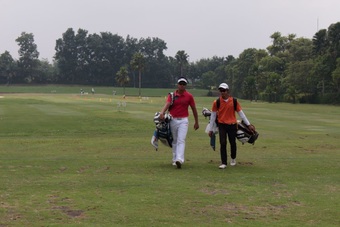 Do You Make Excuses or Make Scores? You would be surprised what the answers to this question tend to be is most of the time. The answers usually begin with an excuse as to why they didn't play as good as they hoped to. After lengthy training in our program at Pro Tour Golf College they will simply answer either with their score or their score code. "I had 76" or "I had 10 / 2 / 6" In our time we have worked with many amateur golfers who claimed to possess very low handicaps, but upon closer investigation and an analysis of their game we concluded that their actual score average in tournaments was much higher than their handicap portrayed. It turns out that many of them only put their best scores in at tournaments, and when they are not playing to their level of expectation they often walk off the golf course feigning an injury, or simply getting so frustrated and mad that they tear their card up and give up on the day. In professional tour golf, every golf score counts all of the time! Our suggestion is that if you’re seriously considering a career as a professional tour golfer that you accept every score you have. This means that if you shoot an 80 or worse, you add it to your collection of golf scores. Accept your bad scores like you accept your good scores. Any amateur golfer can look good if the only scores they post are their best golf scores, but in the long run this will be detrimental to your career. Of course it hurts to shoot high scores, but it is just as much the reality of golf as shooting low scores is. The bottom line is that you must learn to get over it quickly and keep working on ways to lower your higher scores in tournaments. To only post your good golf scores in amateur competition is a form of delusional behavior, and it says a lot about the way you think about the game of golf, and your lack of confidence in your playing and competing ability when things are not going as planned. 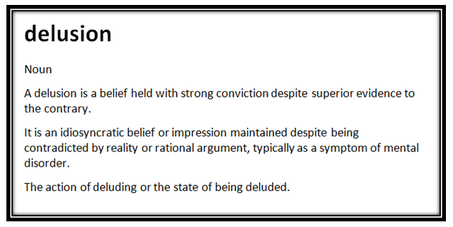 The Upside and The Downside The upside for a delusional elite golfer is that because they submit only their best competition cards, their low handicap makes them eligible to enter a tour qualifying school. Sadly the downside is that over the course of the tournament their high scores each round will expose their true playing ability to everyone. Reality will set in quickly. At every tour school at least 70 percent of the amateur golfers competing are donating their entry fee's to the tour simply because their actual playing and competing skills are nowhere near the standard required. We advise every student at Pro Tour Golf College that has their heart and mind set on playing on a professional golf tour enter a tour school only when their competitive score average in tournaments is at a minimum 25 under par for their past 100 tournament rounds for men, and at least 10 under par for 100 rounds for women. If you are a serious amateur golfer who genuinely wants to become a professional tour golfer then do yourself a favor and seek out the help of a golf instructor who has lot's of experience and success working with professional tour golfers. This highly skilled golf instructor will devise helpful ways for improving your competitive score average getting you prepared properly for a crack at tour school. Also he/she should advise you that the reality might be that you will have to go back to tour school a number of times before you play good enough over the tournament to secure playing privileges on a professional golf tour. 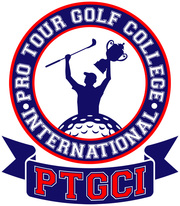 Perth and Jakarta Perth and Jakarta If you are an elite amateur golfer who wants to become a professional tour golfer then your golf handicap should never be used as your guide for entering tour school. The only way to know you are truly ready to make the change from amateur to professional is to develop a low competitive score average. This is the only reality you need to understand to make the change from the amateur handicapping system to the score against par pro system. Lawrie Montague and David Milne - Pro Tour Golf College The Professional Golf Tour Training College How to Overcome Distraction on the Golf Course with an Easy to Learn Bullet Proof Pre-Shot Routine17/4/2015
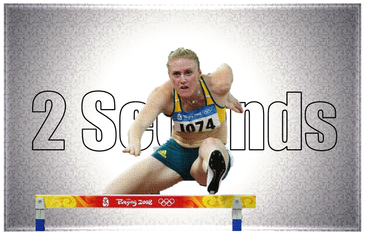 In the Summer Olympics the difference between the top woman running the 100 metres sprint final and the top woman running the 100 metres hurdles final is roughly 2 seconds. Why is there 2 seconds difference? Its simple really; it's the distraction of jumping hurdles. It is the obstacles that get in the way and slow down the performance that separates the two over the same distance. Just 2 seconds...The obstacles that get in your way affect your performance. In golf the difference between the best amateur and professional golfers in a field is the number of strokes; and the difference between the number of strokes between a good golfer and a great golfer really gets down to the amount of distraction that is being noticed and managed. Its how little distraction there is between the time you spend standing behind the ball where you are determining your strategy for playing the shot at hand, through to the execution of the stroke. The time line is short--maybe 10 to 20 seconds in total, but what can happen within this small window of time virtually always determines the final outcome. Here's Wikipedia's definition of distraction. Distraction is the divided attention of an individual or group from the chosen object of attention onto the source of distraction. Distraction is caused by:
"I've always found that anything worth achieving will always have obstacles in the way and you've got to have that drive and determination to overcome those obstacles on route to whatever it is that you want to accomplish." - Chuck Norris How is it that with such a short amount of time to hit a shot the majority of golfers do not or have not developed the ability to do it without some level of distraction? It seems strange that all we really have to do is aim our attention towards something for a few seconds, and yet most of us can't do it very well at all. Or can we?... Well, check out the following video closely and you'll notice that actually we can really aim our attention on something for a few seconds without distraction. OK did you get the question right and count the correct amount of times the players in white passed the basketball to each other? Did you also happen to see the gorilla? You would be surprised how many people watching this video don't see the gorilla. Good focusing ability right? Now imagine for a moment that you could control your attention to the degree that you could hit most of your shots without getting distracted by internal or external interference? Wouldn't that be an advantage? You bet it would. Well you can, and you do very often. That's right, many times in a day you are able to focus your attention on something without being distracted. Now what if you couldn't catch a basketball as confidently as they did in the video? I'm sure you would agree that instead of catching the basketball you would be thinking about actually trying to catch the basketball, which is definitely not the same thing? You would be distracted because you lacked competence and confidence in this task. 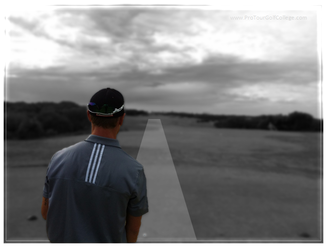 How to Build a Bullet Proof Pre-Shot Routine Much of the distraction you face when you try to play golf shots successfully relates to attempting to play strokes that you are not at a high level of competence with. If you are standing over a shot and attempting to play a shot that you cannot comfortably play 7 times out of 10 or better, then there's a strong likelihood that you will get distracted with thoughts of the shot not coming off as planned. This is one of the main forms of distraction with advanced and elite golfers in our experience. At Pro Tour Golf College our students learn a simple equation to help them understand the process that leads to more focus and less distraction. P = R - D (Performance Equals Routine Minus Distraction) In other words, you can increase your performance potential by improving the simplicity and consistency of your pre-shot routine and consequently reduce distraction. When you make your pre-shot routine simple, and you practice it over and over, distraction reduces. How Do You Do it? When you practice improving your golf skills take the opportunity to practice each shot as if its the only shot you have. Yes it is true that you have to repeat strokes many times over to habituate the learning process, but you also must understand that you need to use a simple and effective pre-shot routine on every shot you hit to a target. There's much confusion with advanced and elite golfers who practice a lot but spend more time practicing shots without a pre-shot routine, and then they wonder why when they are on the course they get distracted easily. If you hit 5,000 golf shots in practice over a year and 80 percent of them (or higher) were hit with no pre-shot routine, then you will understand that just a small percentage were actually hit with the routine that you would want to use on the course. In other words much of the practice would not be beneficial for improving your ability to generate a consistent routine that would increase your focus when hitting shots without being distracted. Here's a simple rule to remember...
If there's a target in your focus, then there must be a pre-shot routine as well. Study the video above and I will take you step-by-step through the architecture of a pre-shot routine that you can easily to learn to do. Now practice the pre-shot routine often because I guarantee you that it will help you to hit shots confidently and competently under any kind of pressure a lot more often. We hope you enjoyed this article and if you found value in it why don't you share it with your friends. See you next time. Lawrie Montague and David Milne - Pro Tour Golf College The Professional Golf Tour Training College When discussing mind-set, goal focus, and perspective with professional players who visit my office, one important coinciding topic always comes up, expectations. 90% of the time I find players to have expectations of themselves and their game which are destroying mental toughness and enjoyment for the game. For example, rookie players in particular often express a change toward greater expectations once turning professional in two key areas: 1) Ball striking, and 2) Score. At first glance, you might think “what’s wrong with that, isn’t that expected of a professional player?” I am certainly not saying you can’t have high expectations, but a sole focus on these two outcomes is not ideal. 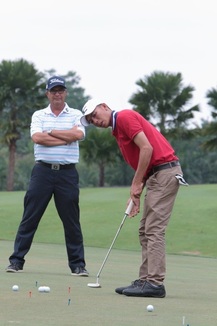 The destructive pattern from EXPECTATIONS to SWING MEDDLING: Developing a sole focus on expectations around ball striking and scoring, place rigid demands on your performance. You either achieve your expectations or you don’t. What I often see as a consequence of failing to meet these expectations is immediate attention given to the technical area of your game: Hitting the range to perfect your swing mechanisms, and questioning your talent, rather than objectively looking at the finer process of your game. Players tell me they feel lost in the same process from round to round, trying to find their swing, spending hours working on their game but seeing little changes in the result, and becoming more tentative and less confident come tournament time. Create professional habits before professional outcomes to promote mental toughness: 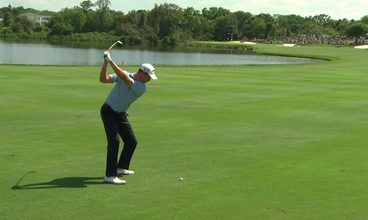 Most elite players have great expectations on striking the ball “professionally,” and scoring “professionally,” but fail to establish high standards on the finer details of their process of their performance such as:
This is the difference between having no standards and establishing higher standards in your game process. Without high standards on the key processes in your game, high expectations on the outcomes of ball striking and scoring is completely misplaced. I utilize a tool that allows players to develop quantitative statistics around the consistency of their routines, and this brings further objectivity to the analysis of your game. http://mentalnotesconsulting.com.au/product/golf-process-monitor-2/ 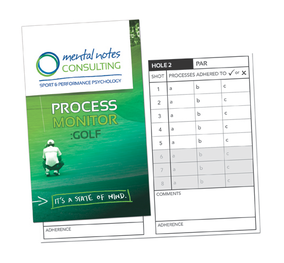 Once you begin to test these processes you will place a stronger emphasis on noticing discrepancies in these areas as the cause of poor shots and poor scoring, over and above the mechanics of your swing on a given day. This form of analysis can also elevate confidence, as you are focusing on things within your control, regardless of how “imperfect” your swing feels from one day to the next. Bottom line, you don't need to lower your expectations for your game, but you have to raise the standards you set for your performance process. Only then will you find a way to effectively assess your game approach, and maintain confidence when working toward lofty goals. Dr Jay-Lee Nair Book an appointment with Dr Jay-lee Nair today and raise the standard of your performance process. |
Archives
June 2019
|
Proudly Supported By
Copyright © 2011 - 2018 Pro Tour Golf College
Website Managed By Golf Performance Media
All Rights Reserved
Website Managed By Golf Performance Media
All Rights Reserved

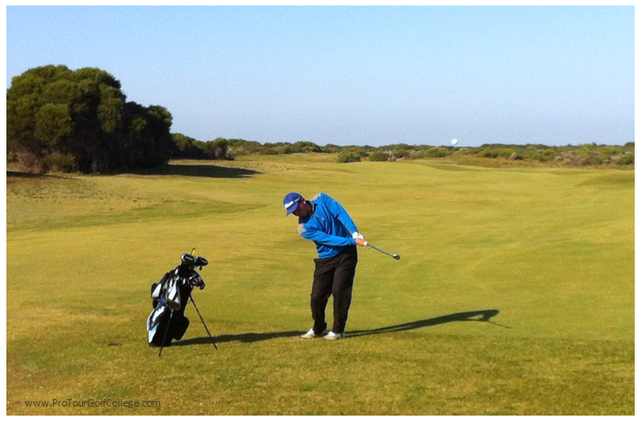
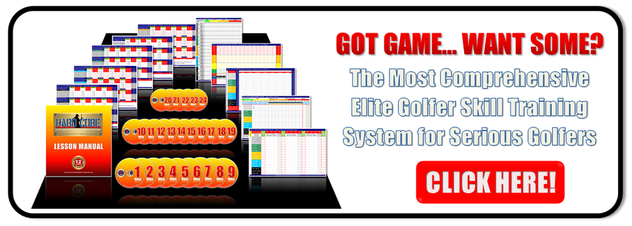
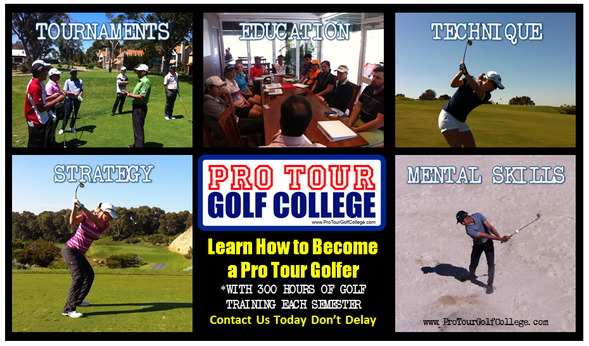
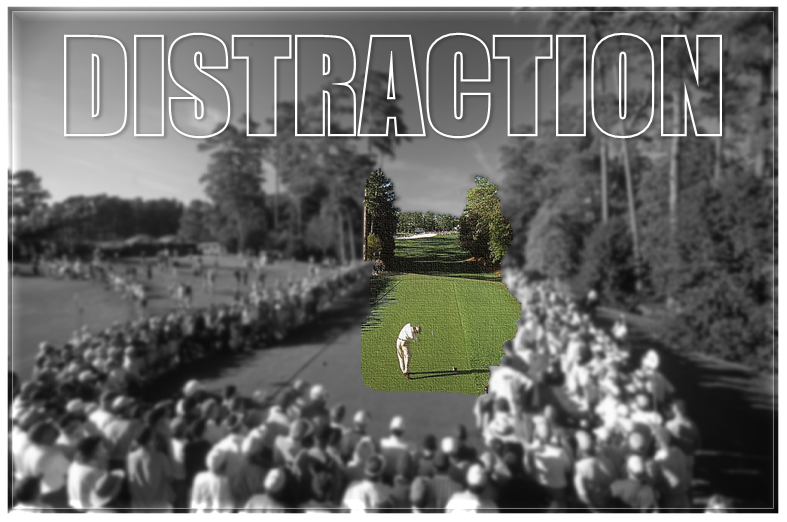
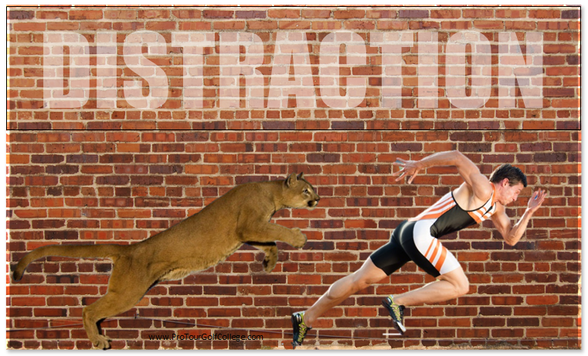
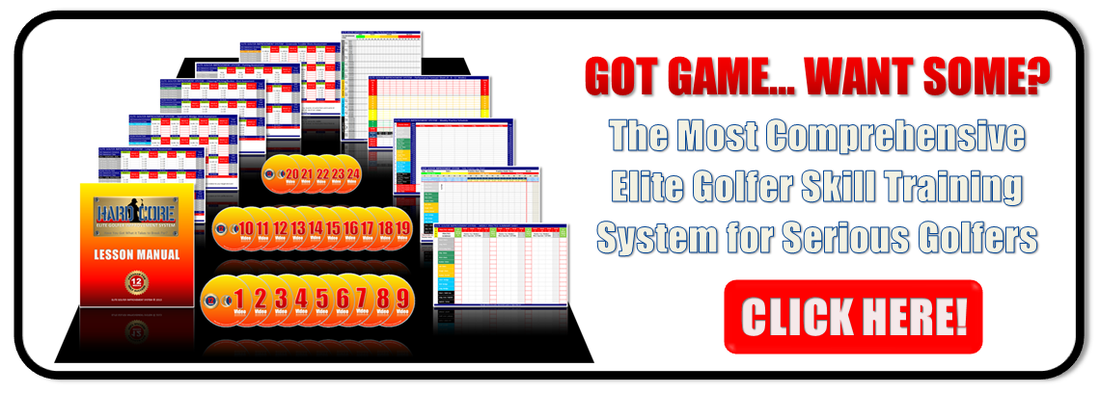
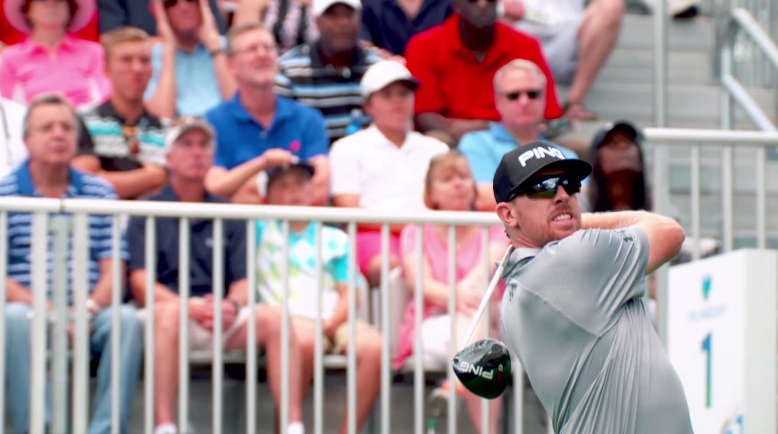
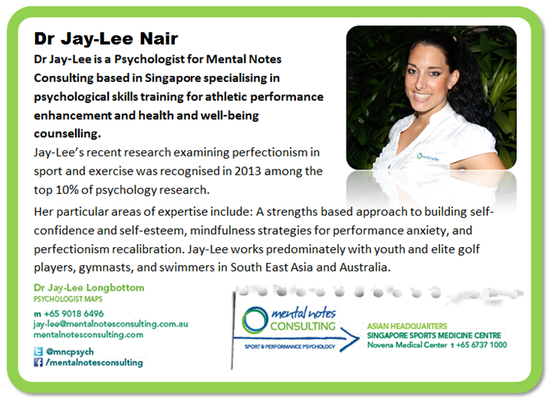
 RSS Feed
RSS Feed



